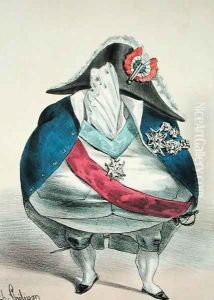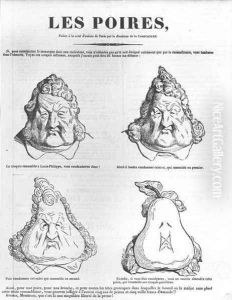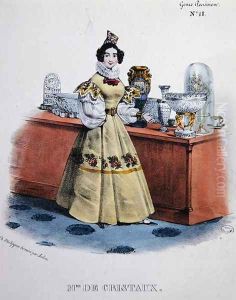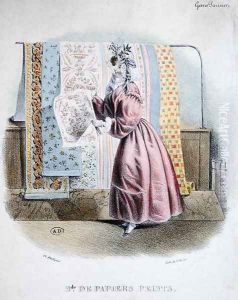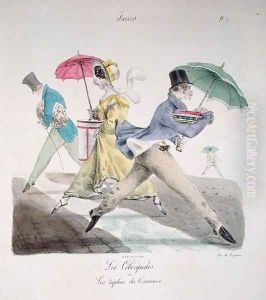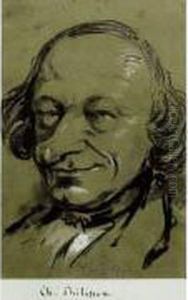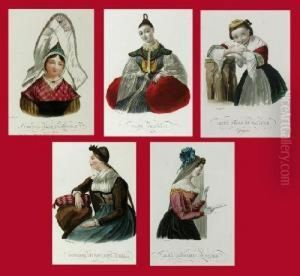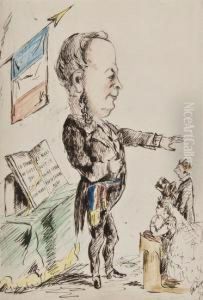Charles Philipon Paintings
Charles Philipon was a French lithographer, caricaturist, and journalist, born on April 19, 1800, in Lyon, France. He is perhaps best known for his political caricatures and for founding the satirical journals 'La Caricature' and 'Le Charivari'. His work is often associated with the July Monarchy period in France, during which the political climate allowed for a relatively liberal press compared to previous regimes. Philipon's caricatures were sharp, witty, and frequently targeted the political establishment, including King Louis-Philippe, whom he famously depicted as a pear—a visual pun on the French word 'poire' as slang for a foolish person.
Philipon's career in caricature began in earnest after he moved to Paris. His talent in drawing and his keen sense of political satire quickly brought him to the forefront of his field. In 1830, he founded 'La Caricature', which would become one of the most influential satirical weeklies of its time. In conjunction with this, he also established the daily newspaper 'Le Charivari' in 1832, which continued to be published well after his death and became a staple of French satirical journalism.
Philipon's battle with censorship was a significant aspect of his career. He and his publications faced multiple lawsuits and fines due to the subversive nature of his work. Despite the pressures, he managed to cultivate a new generation of caricaturists, including Honoré Daumier, one of the most renowned French caricaturists of the 19th century. Philipon's mentorship and publications provided a platform for artists to critique and challenge the social and political status quo.
Charles Philipon's influence extended beyond his own generation. His legacy is reflected in the ongoing tradition of political satire in French media and his contributions to the development of caricature as a form of political commentary. He died on January 25, 1862, in Paris, but his impact on the art of caricature and the culture of free expression in France endures.
